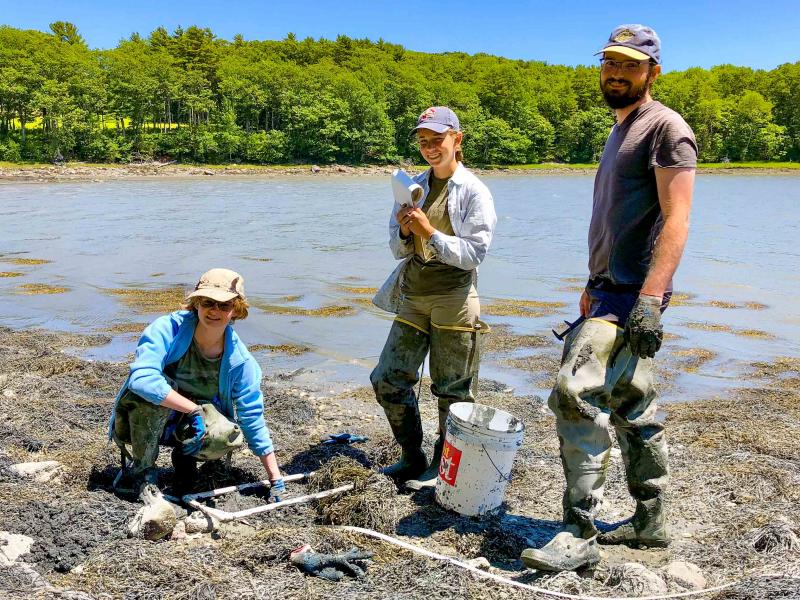Students share summer research through statewide SEA Fellows program
Twenty-five students from 15 universities nationwide presented their summer marine research at the sixth annual Science for Economic Impact and Application (SEA) Fellows Symposium, held this year at the Downeast Institute (DEI) in Beals, Maine.
More than 50 people, including students and their family members; researchers; local municipal leaders and other community members; and marine professionals, attended the Aug. 9 symposium and celebrated the accomplishments of the student researchers.
The SEA Fellows program encourages students in marine research to collaborate on climate-relevant science; network with other undergraduates; and develop science communication and presentation skills. This was the first year that the annual symposium was held at DEI; since 2016 it has been hosted by the University of Maine Darling Marine Center in Walpole.
“This is a celebration of marine science and young scientists. SEA Fellows enables student researchers to share their science with their peers and researchers and community members from across the state,” noted Heather Leslie, director of UMaine’s Darling Marine Center.
Leslie co-founded the program in early 2016, along with Brian Beal, who serves as DEI director of research and is a University of Maine at Machias faculty member.
“We wanted a way to connect young scientists across the state with one another,” Leslie said.
Student research related to a wide range of applied marine science themes. Among them was Florida State University rising senior Lena Kury, who worked with UMaine professor Damian Brady at the Darling Center this summer. Her independent research focused on Atlantic cod and one of the most important habitats for juveniles of the species: eelgrass beds. Using baited remote underwater video, Kury investigated how well this technology can help researchers identify juvenile cod in eelgrass habitats.
University of New Hampshire 2021 graduate Owen Hamel worked in professor Robert Steneck’s laboratory, also at the Darling Center. Hamel investigated how American lobsters respond to low oxygen environments.
“Understanding lobster behavior in response to hypoxic environments could help fisheries minimize lobster mortality in traps by changing fishery policies on trap placement in areas with higher oxygen levels,” Hamel said.
During her poster presentations, Roger Williams University rising senior Emily Leonard reflected on her SEA Fellows experience: “Meeting so many different people and how they go about their projects was amazing. Everyone had different ideas when it came to presenting their projects. It’s fun to talk to people around your age about topics we are all passionate about,” Leonard said.
DEI Executive Director Dianne Tilton closed the student symposium, emphasizing how important it is that such solutions-oriented science is shared with members of the public. As a former state legislator, Tilton spoke from experience about the value of such research and its effective communication.
“It is important that policy makers and leaders know how to use different types of research and understand how to discern its quality. These undergraduates are helping to make that happen,” Tilton said.






















